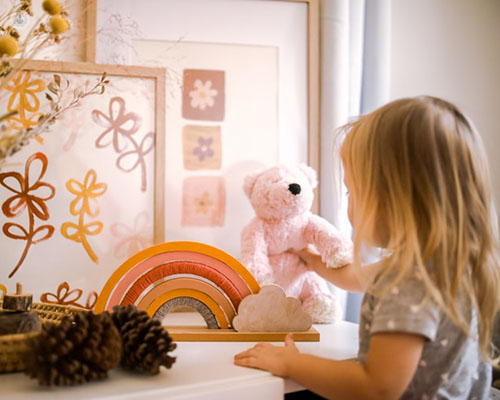Top tips on how to manage bedwetting in children
Autore:
Bedwetting in children can be worrying and frustrating for parents, yet it shouldn’t be a concern until your child is six years old. Miss Marie-Klaire Farrugia is a paediatric urologist who deals with a spectrum of continence issues on a daily basis, ranging from bedwetting in otherwise healthy children, to major bladder and bowel continence issues in children with anatomical abnormalities. Her she shares her top tips on how to manage your little one’s bedwetting.

How can I treat my child’s bedwetting?
Parents can try the following home remedies with their little one:
1. Make sure your child is drinking enough
It may sound counterintuitive and leave you questioning whether it will make your child wet even more but the opposite is true. The more they drink, the more the bladder stabilises and gains capacity. What they drink is equally important: water is best, but milk, fresh juice, and orange and lemon squash are also fine.
Avoid sugary blackcurrant and dark-coloured drinks, and fizzy or caffeinated drinks (including Red Bull and Lucozade) as these irritate the bladder muscle. Good fluid intake allows the bladder to develop a larger capacity, helping to prevent bedwetting.
Restricting drinking in children is counterproductive. Encourage drinking first thing in the morning, and throughout the school day but stop drinks one to two hours before bedtime. Food can also stimulate the kidneys so allow one to two hours between dinner and bed-time where possible.
The National Institute for Clinical Excellence (NICE) guidelines on fluid intake are:
- 4-8 years - 1000-1400ml
- 9-13 years - 1200-2300ml
- 14-18 years - 1400-3000ml
2. Regular voiding
Children should be encouraged to go to the toilet first thing in the morning then every three hours (or every break time) during the day. This “trains” the bladder muscle to work properly. Children often get distracted, or avoid toilets in public places, but “holding on” will only exacerbate the bladder dysfunction.
3. Be aware of the child’s stooling habits
Children (and their parents) often aren’t aware of how often they open their bowels, or what the stool looks like! Constipation (not stooling for more than three days, or passing small hard rocks or painful motions) loads the rectum and affects how the bladder functions and empties. Treating constipation alone is often sufficient to resolve wet nights. Children should stool every day or every other day with a soft stool. Your GP will be able to advise and prescribe a gentle laxative where required.
4. Check toileting position
This mostly applies to girls – who commonly suffer from recurrent cystitis and “smelly urine” in addition to wetting. They should be seated comfortably with their feet on a step to help them balance and relax the pelvic muscles. One leg out should be taken out of their underwear, this allows the bladder to empty properly and avoids reflux of urine into the vagina. You should always wipe from front to back. “Leaking” soon after a wee and “smelly” urine could be due to pooled urine in the vagina leaking out.
What if trying at-home remedies fail?
This is the right time to consult a paediatric urologist. We will take a detailed history and examine the child, as subtle anatomic findings could require further investigation. An initial assessment is usually enough to establish the next course of action, which may involve medical treatment.
Occasionally investigations such as a urine analysis, a renal tract ultrasound scan and bladder emptying studies (non-invasive urodynamics) are requested. No invasive investigations will be required in most cases.
READ MORE: ON THE MEDICAL TREATMENT FOR BEDWETTING
You can book an appointment to see Miss Farrugia now via her Top Doctor’s profile if you are worried about your child’s bedwetting and would like an expert opinion.


